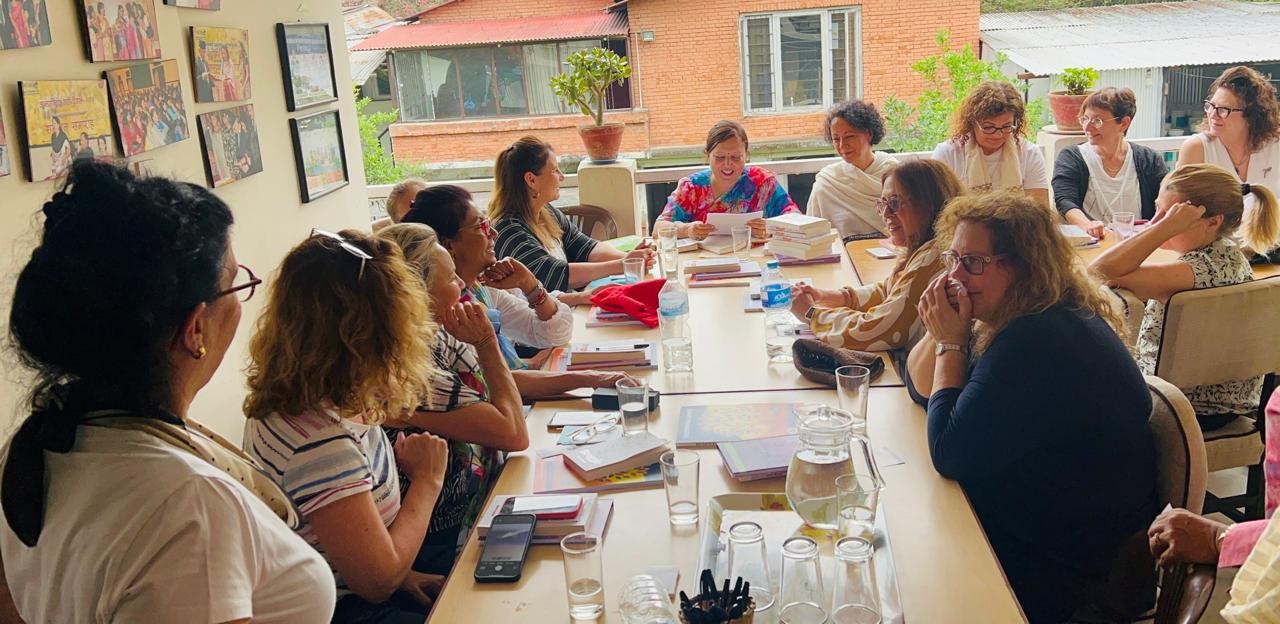KATHMANDU, May 29: A delegation from the Israel-Asia Chamber of Commerce has arrived in Kathmandu to explore business opportunities in Nepal.
The delegation, led by Anat Bernstein-Reich, Chairperson of Israel Asia and President of the Israel India Chamber of Commerce, met with Shova Gyawali, Chairperson of the Federation of Women Entrepreneurs of Nepal (FWEAN). The Israeli business delegation expressed its readiness to work with Nepalese women entrepreneurs in agriculture and in introducing Israeli technology to Nepal.
“Our business women delegation came to explore business opportunities in Nepal. Meeting with FWEAN was very inspiring. When women meet, we speak the same language,” President Gyawali said, quoting President Anat Bernstein-Reich. “We understand each other because we face similar challenges, regardless of where we come from.”
President Berstein-Reich also announced that a series of webinars on agriculture will be launched soon to introduce Israeli technology to Nepal.
An Israeli delegation of 18 women entrepreneurs arrived in Nepal for a two-day visit at the invitation of FWEAN. The delegation openly praised the participation of Nepali women in the political and industrial spheres.
During a meeting with Nepali women entrepreneurs, President Bernstein-Rich said Nepal’s 33 percent female participation in politics is an example for the world. According to FWEAN President Gyawali, President Bernstein-Rich noted that while women’s participation in education, employment, business and industry is significant in Israel, it is concerning that only 10 percent of women participate in politics. She said she is working to increase women’s participation in politics.
According to President Gyawali, during the meeting with the Israeli delegation, Nepali women entrepreneurs received various information including technical assistance, training programs, investment opportunities and exchange programs. He said that the two sides agreed to cooperate for mutual assistance and mutual benefit, adding that Israel’s modern agricultural system and innovative strategies in the tourism sector are exemplary for Nepal.
The Israeli delegation said there is a need to organize workshops and training sessions to equip Nepali women entrepreneurs with the latest skills and knowledge. During the visit, they stressed the need for advanced modern agricultural systems, investment in the agriculture and tourism sectors, mutual learning and cultural exchange.

In response, Gyawali said Nepali women entrepreneurs are ready to discuss possible collaboration with Israel. “We believe there are many avenues for Nepal and Israel to cooperate together. We are eager to learn from Israel’s advanced agricultural techniques and innovative tourism strategies. Your expertise in these areas will significantly strengthen our efforts and help us achieve sustainable growth,” she said.
Gyawali further said that FWEAN is primarily interested in technical assistance, training programs, investment opportunities and exchange programs.

